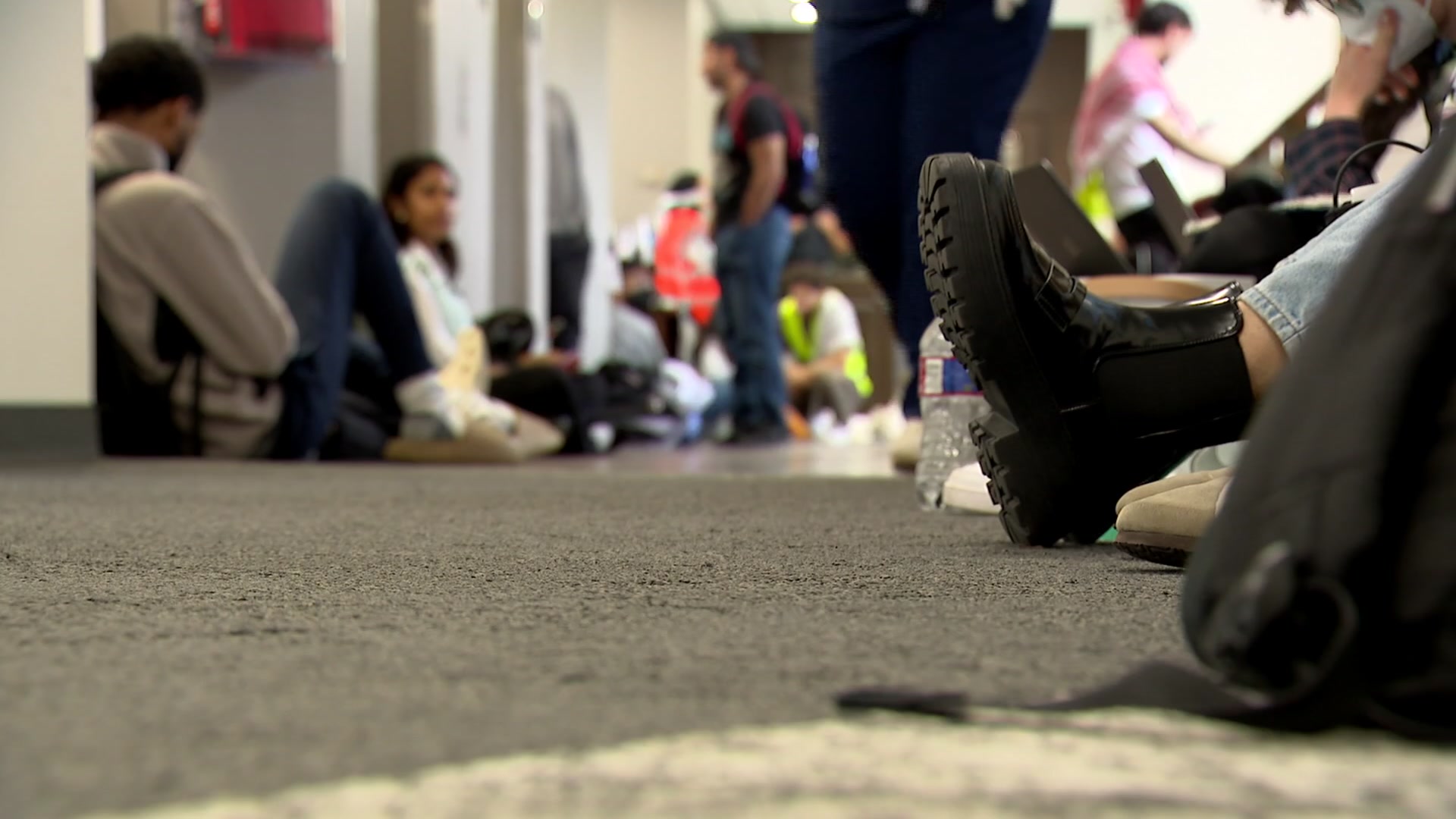Advocacy groups have filed a complaint with the U.S. Justice Department claiming Dallas-area public schools are too harsh in their truancy rules, subjecting students to cruel and unusual punishment by handcuffing them in class, sending them to special adult courts and assessing stiff fines for skipping school.
The complaint, filed Tuesday with the department's Civil Rights Division on behalf of seven Dallas County students, names the county's truancy courts, along with the Dallas Independent School District -- the second-largest in Texas -- and smaller nearby districts in Garland, Mesquite and Richardson. It alleges they are using "inconsistent and inflexible" attendance polices that violate the civil rights of students with disabilities and limited English proficiency. Dallas ISD is further alleged to have violated the civil rights of pregnant students in prosecuting truancy.
In a statement Tuesday, the Dallas school district said students are treated equitably as it "adheres to all attendance policies set by the state" and that attendance issues are taken "very seriously." Richardson Independent School District issued a similar statement, saying it "works proactively to educate students and parents about attendance expectations and truancy."
Garland schools did not return calls seeking comment, and Mesquite Independent School District spokeswoman Laura Jobe said officials were reviewing the complaint and had no immediate comment.
Only Texas and Wyoming prosecute truancy cases in adult courts. The Texas policy stems from 2001, when the Legislature transferred "Failure to Attend School" cases to adult courts, which already handled many other Class C misdemeanors brought against students.
Texas courts prosecuted a whopping 113,000 truancy cases against children ages 12 to 17 in fiscal year 2012 -- more than double the number of truancy cases prosecuted in all other 49 states combined, but that's because 48 of those states use juvenile courts for such cases.
Still, according to the National Center for Juvenile Justice, approximately 52,000 truancy cases were filed in the juvenile courts nationwide in 2009, the most recent data available -- meaning Texas' figure remains more than double the rest of the country.
Local
The latest news from around North Texas.
"When I talk about this outside of Texas, people who work in juvenile justice in other states just sort of gasp," said Deborah Fowler, deputy director of Texas Appleseed, which filed the complaint along with Disability Rights of Texas and the National Center for Youth Law.
Yet Texas truancy prosecutions have actually declined since the Legislature in 2011 approved raising the minimum age to be charged with skipping school from 10 to 12. But Fowler said Dallas County alone prosecuted more than 36,000 truancy cases last year, nearly three times Harris County -- which includes Texas' largest district, the Houston Independent School District.
Dallas County's truancy courts collected $2.9 million in fines in fiscal year 2012, enough to cover more than half the courts' about $4.2 million operating costs.
"There is this kind of perverse incentive to keep the fines high," Fowler said.
The complaint isn't seeking monetary damages, as in a lawsuit, but rather asks the Justice Department to declare that prosecuting truancy as a crime is unconstitutional. It also seeks to bar district officials from handcuffing students at school and transporting them to court for truancy hearings.
Fowler said filing a federal complaint is less adversarial and time consuming than a traditional lawsuit, noting that the groups want to work with all parties so that Dallas County can change its policies and eventually become a model in Texas. The Justice Department's Civil Rights Division has recently worked with school districts to address discrimination complaints in Massachusetts and Florida.
The complaint gives only the initials of the students involved, but they include an 8th grader who missed school with the flu but was charged with truancy for not turning in a doctor's note on time; and a student who stayed home for a month after having a baby but faced truancy charges when her school refused to accept her doctor's note.
Nicole Pryor, who lives in southern Dallas, said two of her four children are involved in the complaint.
She acknowledged her children have made mistakes, but noted that her 16-year-old daughter, Ashley Brown, ended up in court after a suspension for tardiness was incorrectly recorded as unexcused missed school days.
Brown said her school has been very apologetic. "But that didn't help me in court," she said. "They were treating me like a stone-cold criminal."
Pryor's son, meanwhile, was 16 when he was handcuffed and taken to truancy court for a hearing.
"The system's not working," the 47-year-old mother said. "It's out of control."



